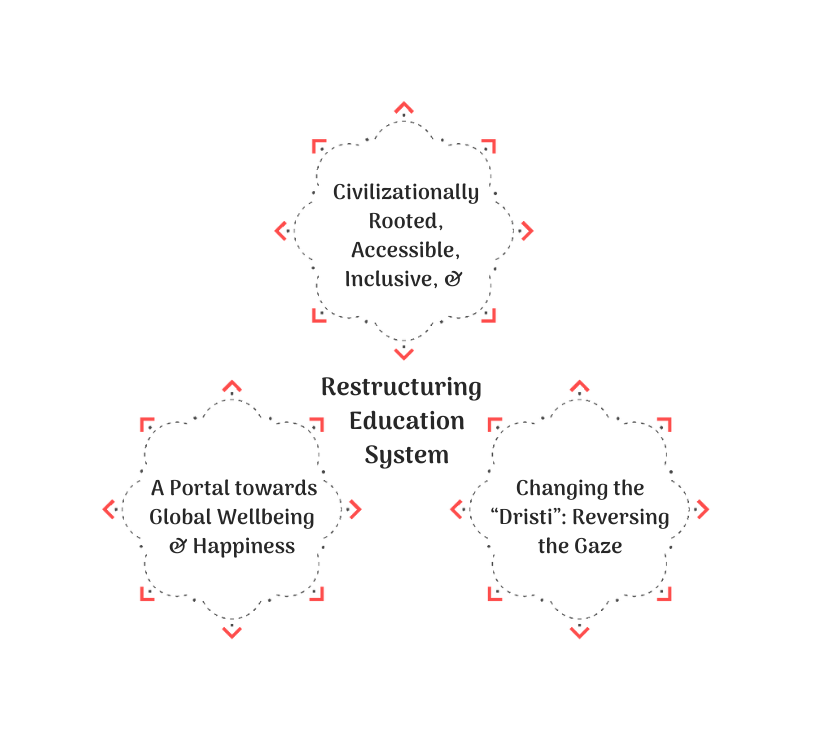Education - Accessible, Inclusive, and Civilizationally-rooted
The accumulation of knowledge that has taken place in India over the course of millennia is both continuous and cumulative. Knowledge traditions in various fields of thought and experience, such as philosophy, medicine, grammar, architecture, geography, literary theory, polity and political economy, logic, astronomy and mathematics, military science, metallurgy, agriculture, mining and gemmology, and shipbuilding, are examples of the types of traditions that fall under this category. The conceptual frameworks and specialized vocabularies that were established because of these traditions are still used in modern day India. In addition to this, intellectual egotism does not play a role in Indian tradition. In his work Vākyapadīya, which was written in the 5th century, the linguist and philosopher Bhartrihari explains a cardinal tenet of the formation of knowledge: “The intellect acquires critical acumen by familiarity with different traditions. How much does one really understand by merely following one’s own reasoning only?” (Bhartrihari, Vākyapadīya, II.484).
Indian philosophers have been constantly engaged in internal argument and dialogue, and they have also interacted with traditions from other countries throughout history. As a result, the traditions themselves are inherently polycentric.
In addition, this event ought to be utilised to familiarise the outside world with our indigenous and janajātīya customs. Their art, music, and dance forms have mesmerised Indians for centuries, and their diversity is something that is extremely uncommon in the cultural landscapes of other countries. From Warli paintings, the craftsmanship of indigenous people in states like Odisha and Jharkhand, to the unique cultural practices of communities in the north-eastern states are just some of the aspects that have contributed to India’s rich diversity of knowledge traditions. Along with their knowledge of flora and fauna, our Vanavāsi brothers have also carefully preserved medicinal knowledge over the course of many years.
